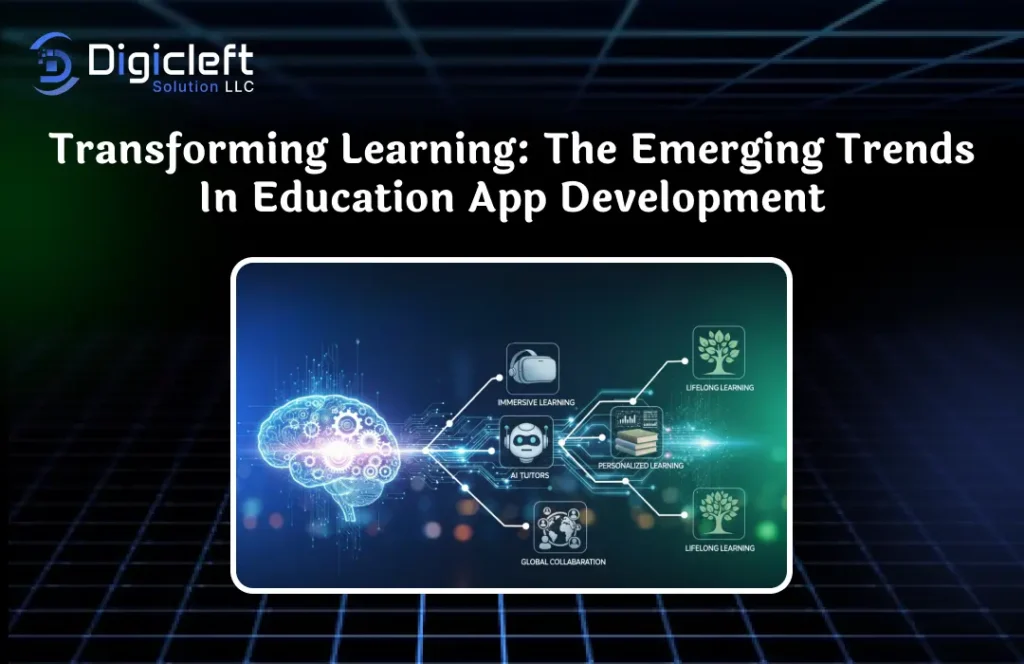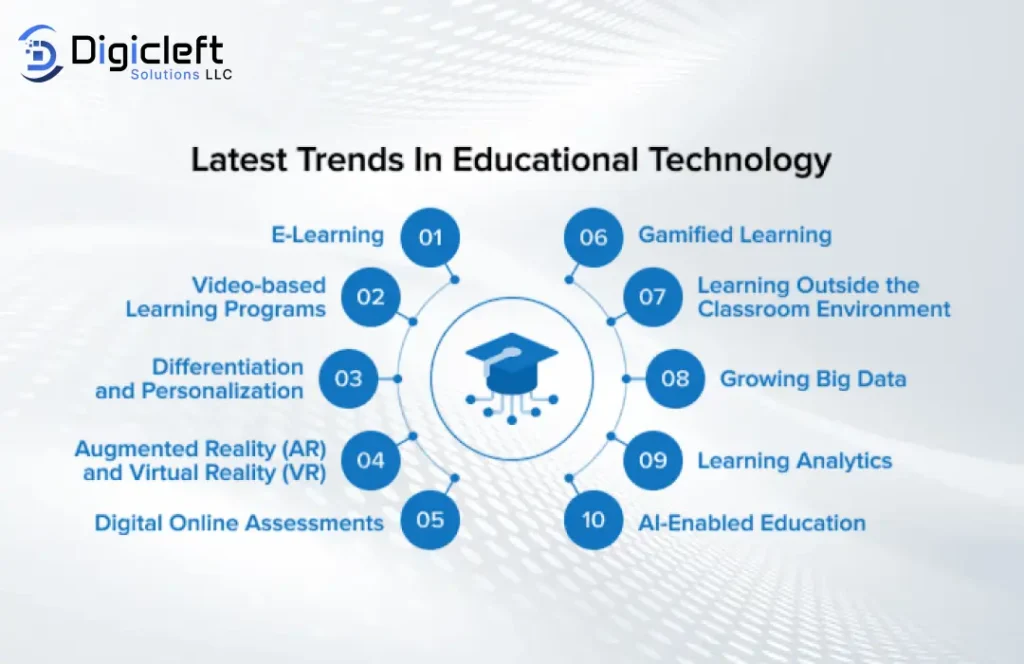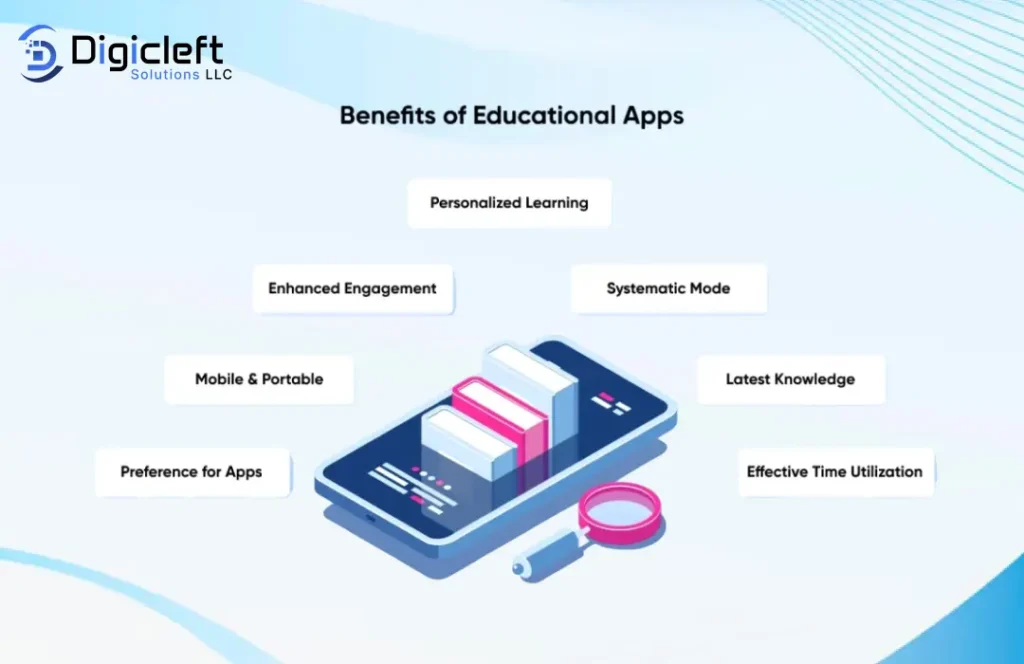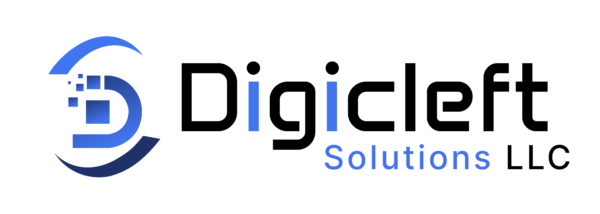
Education isn’t what it used to be. Classrooms are no longer confined to four walls, and chalkboards are now replaced with touchscreens and interactive apps. From toddlers learning rudiments to professionals upgrading skills, education apps are revolutionizing how knowledge is shared and consumed.
But what’s fueling this transformation? It’s the rapid shift in technology, the need for accessibility, and the growing appetite for personalized learning experiences.
The Current State of Education Technology
Today, education technology (EdTech) is one of the fastest-growing industries worldwide. Schools, universities, and training institutes have embraced digital platforms, while parents and learners increasingly rely on mobile apps for learning. Whether it’s Duolingo for languages, Coursera for advanced education, or niche apps built by companies like Digicleft Solution, the impact is undeniable.
Drivers Behind Education App Development
Rise of Mobile Learning
Mobile phones are everywhere. With affordable internet access, learners now carry a classroom in their pocket. Education apps are designed to fit into these lifestyles, making learning accessible anytime, anywhere.
Increasing Demand for Personalized Learning
Every student learns differently. Traditional methods often fail to cater to individual learning paces, but apps now use AI and analytics to personalize experiences helping learners progress at their own pace.
Accessibility and Inclusivity in Education
Education apps bridge gaps for learners with disabilities, those in remote areas, or individuals juggling work and study. Features like text-to-speech, captions, and offline access make education more inclusive.

Core Features That Define Modern Education Apps
- Interactive Content and Gamification – Turning lessons into interactive quizzes, puzzles, and games makes learning engaging and fun.
- Artificial Intelligence (AI) and Machine Learning (ML) – AI-powered tutors adapt to learners’ needs and guide them through struggles.
- Cloud-Based Learning Solutions – Access materials across devices and enable seamless collaboration.
- Real-Time Collaboration Tools – Live classes, chat functions, and discussion boards replicate classroom environments virtually.
Emerging Trends in Education App Development
- Adaptive Learning Platforms – Apps analyze performance data to create customized learning paths.
- AR & VR Classrooms – Making subjects immersive, like virtually exploring the solar system.
- Microlearning – Delivering short, digestible lessons for busy schedules.
- Social Learning – Peer-to-peer discussions, forums, and group activities enhance engagement.
- Blockchain for Credentials – Secure, tamper-proof certifications and degrees.
Benefits of Education Apps

- Flexibility – Learn at your own pace without peer pressure.
- Data-Driven Insights – Teachers can track progress in real time and adjust teaching methods.
- Cost-Effective & Scalable – Reach thousands of learners without high additional costs.
Challenges in Education App Development
- Data Privacy & Security – Protecting sensitive student data is critical.
- Digital Divide – Not all learners have access to fast internet or advanced devices.
- Balancing Engagement – Keeping apps engaging without becoming distractions.
The Role of Companies Like Digicleft Solution
- Tailored Platforms – Creating apps for schools, universities, and businesses.
- Advanced Tech Integration – Using AI, AR, and cloud-based solutions to stay ahead.
- User-Friendly Design – Ensuring learners focus on studying, not struggling with the app.
The Future of Education App Development
- Blended Learning – Combining physical and digital classrooms.
- Global Reach – Connecting learners across borders.
- Continuous Innovation – Smarter, immersive, and adaptive learning experiences.
Conclusion
Education apps are no longer optional they’re becoming the backbone of modern learning. From gamified lessons to AI-driven tutors, EdTech is reshaping how we acquire knowledge. Companies like Digicleft Solution are at the forefront of this change, creating platforms that make learning more accessible, engaging, and effective. The future of education isn’t just digital it’s dynamic, adaptive, and deeply personal.
FAQs
1. What makes education apps different from traditional learning methods?
They offer flexibility, personalization, and interactive experiences that traditional methods often lack.
2. How do gamification features improve learning outcomes?
Gamification makes learning fun and motivating by rewarding progress with quizzes, badges, and challenges.
3. Can small schools or startups build their own education apps?
Yes! With the right partner, even small institutions can create affordable, customized apps.
4. How secure are online learning platforms?
Most apps now use encryption and secure logins, with some leveraging blockchain for extra safety.
5. What role will AI play in the future of education apps?
AI will power adaptive learning, smart tutors, and personalized experiences tailored to each learner’s needs.


